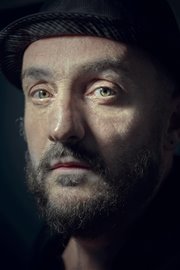Environment, 1st Prize
The End of Trash - Circular Economy Solutions
Luca Locatelli
For National Geographic
For National Geographic
05 December, 2019
Newly recycled wool fibre dries in a textile facility in Prato, Italy. A wet shredding technique is used to strip the wool and turn rags back into fibre that can then be spun into thread to produce fine fabrics. Discarded clothing is a source of pollution worldwide. Prato has long been a model of innovation in the textile sector, having historically based its industrial fortune on the reuse of second-hand clothing from all over the world.
For centuries, industrialized countries have followed a take-make-waste linear economy: raw materials are gathered and transformed into products that are sold and then discarded as waste. Value is created in this economic system by producing and selling as many products as possible. The model not only drains natural resources, but also—in the demands it makes in energy consumption and because of a reliance on fossil fuels—exacerbates global heating. A circular economy offers an alternative by decoupling economic activity from the consumption of finite resources. It is based on designing waste and pollution out of the system, keeping products and materials in use, and regenerating natural systems. Farmers, manufacturers and governments across the globe are taking steps to experiment with and implement a circular economy as part of their efforts to address the climate crisis.

Luca Locatelli
Luca Locatelli is an environmental photographer and film-maker focused on the relations between people, science-technology and the environment. Locatelli produces his stories ...
Through our education programs, the World Press Photo Foundation encourages diverse accounts of the world that present stories with different perspectives.
Our exhibitions showcase stories that make people stop, feel, think and act to a worldwide audience.
Our annual contest recognizes and rewards the best in photojournalism and documentary photography.
